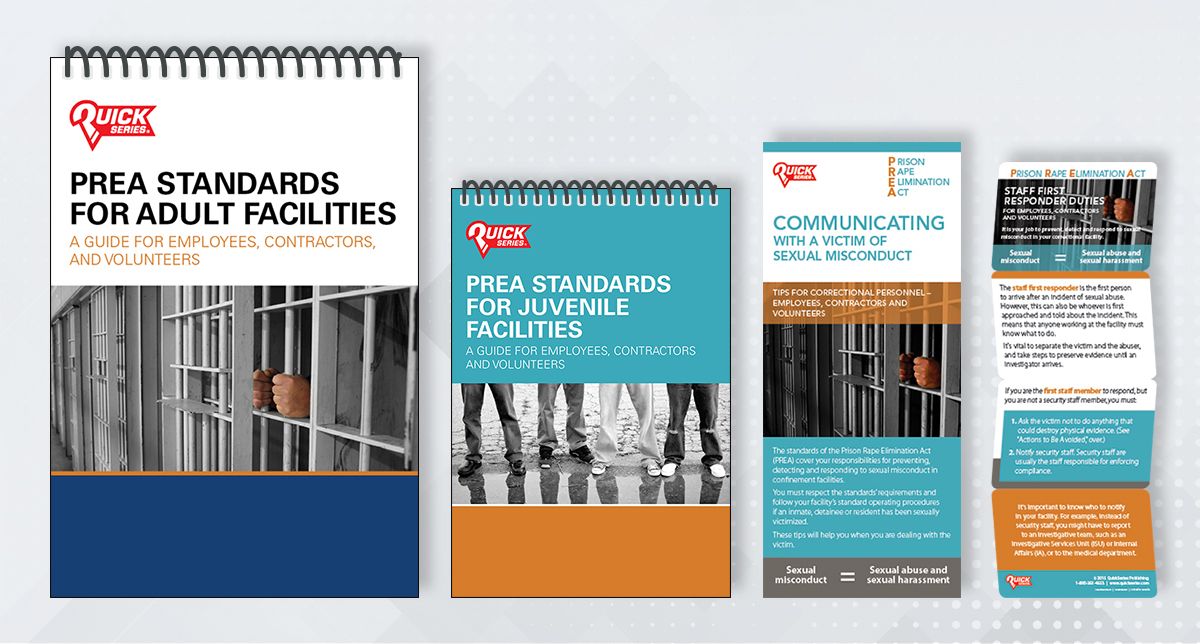The Prison Rape Elimination Act (PREA) was signed into law in September 2003. It’s a Federal law that aims to eliminate sexual misconduct in Federal, state, and local confinement facilities such as prisons, jails, juvenile facilities, and police lockups. It is intended to make confinement facilities free from sexual misconduct. PREA mandates that all corrections facilities adopt a zero-tolerance policy for sexual abuse and implement policies that address it, respond to it, and prevent it. This includes sexual misconduct between inmates and between inmates and staff.
Facility administrators are responsible for the implementation and enforcement of PREA standards. It is their job to make sure that sexual misconduct is reported and that victims are cared for and supported. Visit the PREA Resources Center website to view the different types of standards that apply to each type of confinement facility.
What Are the Responsibilities of the First Staff Responder?
A staff first responder is the first person to arrive after an instance of sexual misconduct or assault. These responsibilities also apply to someone who is approached first and informed of the incident, which is why it is crucial that all personnel must know the proper procedures to follow.
The first staff responder should:
- Make sure the victim and the perpetrator are kept physically separated.
- Secure the area so law enforcement can collect evidence
- Ask both the victim and the perpetrator to avoid showering, eating and drinking, brushing their teeth, using the bathroom, smoking, or changing their clothing until all evidence has been recorded and collected.
- Notify the shift supervisor immediately and then PREA Compliance Manager and medical personnel.
Effective response requires good communication skills as well as proper listening techniques. Supporting the victim during a crisis is of the utmost importance.
- Inform the victim that the facility’s confidentiality policy.
- Keep the person safe and allow them to talk about how they feel.
- Never force them to discuss something they’re not willing to talk about.
- Feed them information about what can happen next to prepare them for the next steps – from medical treatment to helpful services, including counselors.
- Always be sure of the information you’re giving a victim. If you aren’t sure of something, contact a knowledgeable source for confirmation.
Sexual abuse and misconduct can have major consequences for a victim, a corrections facility, and communities as a whole when previously incarcerated individuals return to them. This is why it is vital that all employees, contractors, and volunteers understand and comply with PREA standards.
Is your facility informed and ready to act? QuickSeries’ PREA materials are accurate, up to date, and can be customized to your specific organization. Contact an Account Manager now to discuss your needs and request a sample pack.
